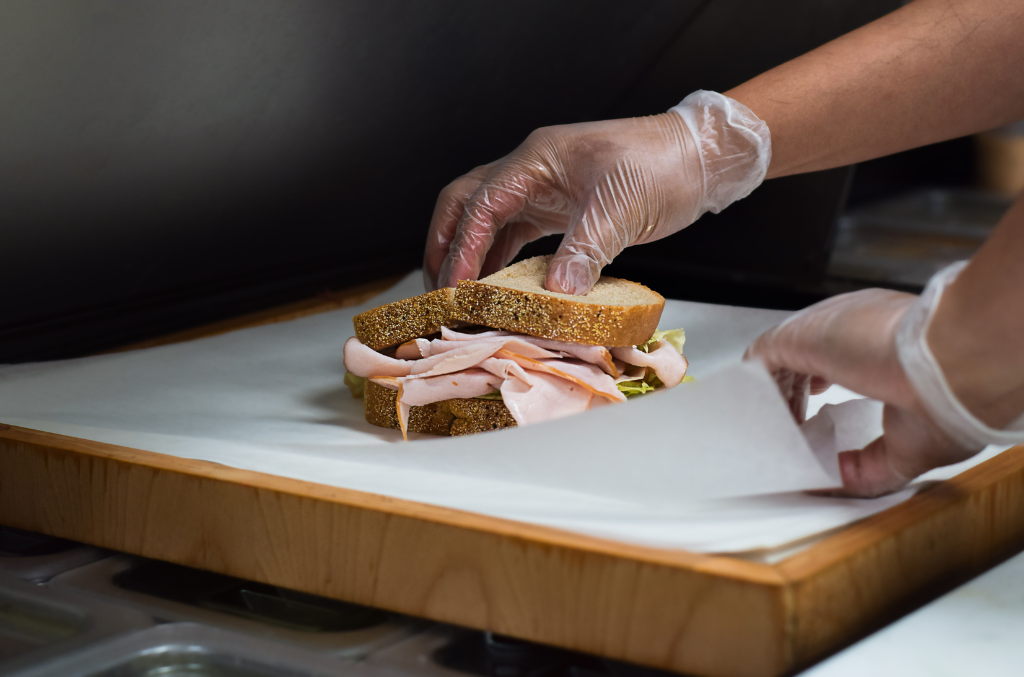Deli and Food Wraps
Unwrapping the Essentials: Your Comprehensive Guide to Deli and Food Wraps
In the hustle and bustle of the modern world, convenience and safety are two factors that greatly influence our food choices. This is where deli and food wraps come into play. From keeping your sandwich fresh to preserving the shelf life of deli products, these food wraps serve as an essential tool in our daily lives.
The significance of deli and food wraps extends beyond just convenience. These wraps play a crucial role in maintaining food safety, preventing cross-contamination, and preserving the quality and freshness of food. Whether it’s a cling film used to wrap a leftover pizza or parchment paper that helps bake cookies to perfection, different types of deli and food wraps cater to diverse requirements.
In This Article
Historical Overview of Food Wrapping Solutions
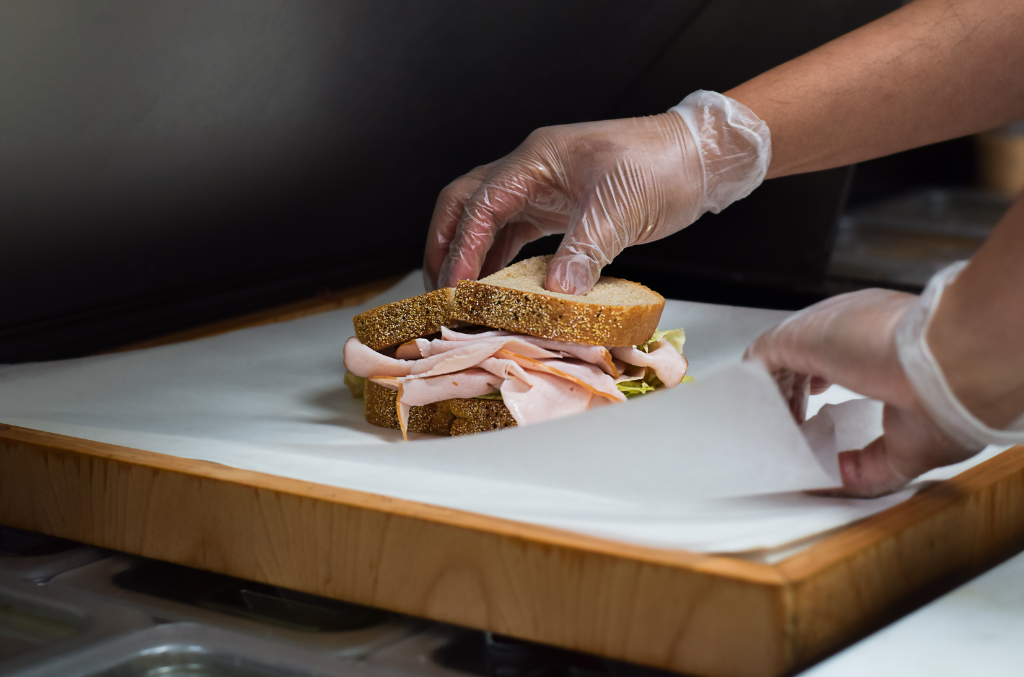
The history of food wrapping solutions dates back to ancient times. Early civilizations used natural materials like leaves and animal skins as primitive forms of food wraps. With the dawn of the industrial revolution, materials like paper and aluminum foil were introduced.
The mid-20th century saw the advent of plastic wraps, which quickly became a staple in households and food industries due to their versatility and cost-effectiveness. Today, with growing environmental concerns, there is a noticeable shift towards eco-friendly wraps that are sustainable and biodegradable.
From humble beginnings to technologically advanced solutions, deli and food wraps have come a long way. In the following sections, we will delve into the different types of deli and food wraps, their uses, and their impact on food safety and quality. We will also cover how to choose the right food wrap for your needs and the regulatory aspects you need to be aware of.
Unveiling the Types: An In-depth Look at Deli and Food Wrap
When it comes to preserving and protecting food, not all wraps are created equal. Depending on the nature of the food, the method of cooking, and the duration of storage, a specific type of food wrap may be more suitable than others. Here, we’ll break down the most common types of deli and food wraps and their unique properties.
Plastic Wrap: The Ubiquitous Choice
Also known as cling film, plastic wrap is a thin, clear, and flexible film commonly used in kitchens around the world. Its ability to adhere to various surfaces makes it an excellent choice for sealing food items in containers, thus preventing spills and retaining moisture. It’s also widely used for wrapping food directly, such as fruits, vegetables, and leftovers.
Aluminum Foil: The Heat-Friendly Alternative
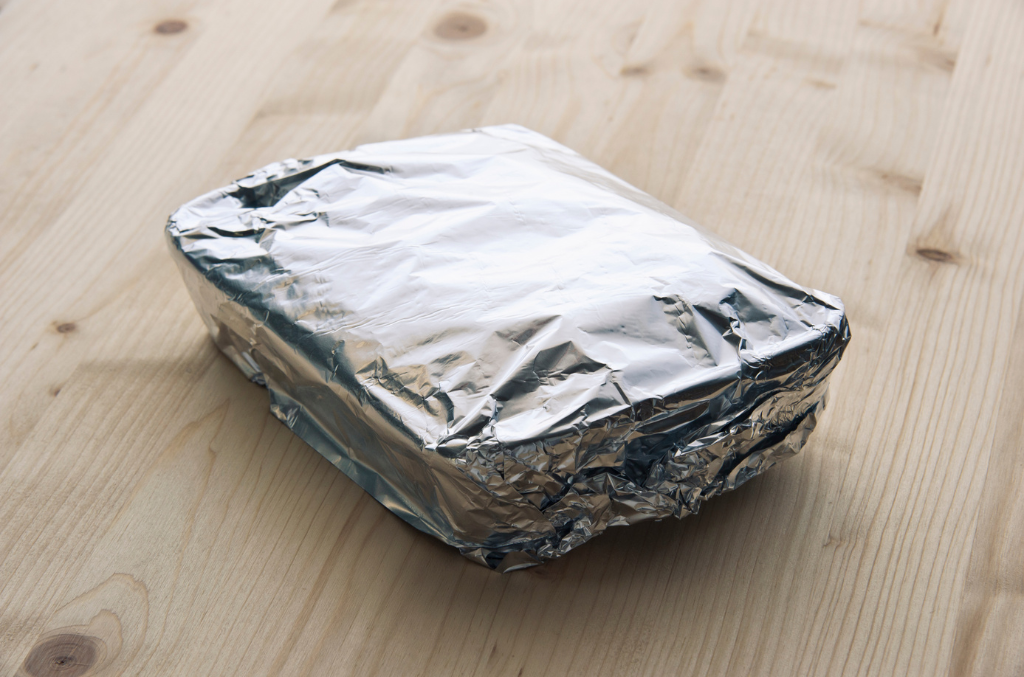
Aluminum foil is a heat-resistant wrap that’s ideal for cooking, baking, grilling, and preserving food. Its reflective surface can help cook food evenly, making it a favorite for roasting and baking. Foil also forms a tight seal, making it great for long-term freezer storage.
Wax Paper: The Old-School Deli Favorite
Coated on both sides with a thin layer of wax, wax paper is waterproof and non-stick, making it perfect for wrapping sandwiches, cheeses, and cold cuts. Its non-stick property also makes it a suitable liner for baking trays when baking goods that don’t require direct heat.
Parchment Paper: The Baking Companion
Parchment paper is a heat-resistant, non-stick paper that’s ideal for baking purposes. It prevents food from sticking to the baking tray and promotes even heating. It’s also used to wrap food that’s cooked en papillote (in a folded pouch).
Eco-Friendly Deli and Food Wraps: Sustainable Choices for Today’s Conscious Consumer
With growing environmental concerns, eco-friendly deli and food wraps have emerged as a sustainable alternative to traditional food wraps. These are often reusable, made from materials like beeswax, soy wax, or vegetable waxes. They’re perfect for wrapping sandwiches, fruits, and vegetables, and can be washed and reused, reducing waste and carbon footprint.
Each of these wraps has its unique features and uses. Understanding these differences is crucial in choosing the right wrap for your specific needs. In the following sections, we’ll delve deeper into the science behind these wraps and how to choose the right one for you.
The Science Behind Deli and Food Wraps
Choosing the right deli and food wraps is not just about convenience and practicality. There’s a science to it that involves understanding how different materials interact with food and the environment to preserve freshness and prevent spoilage.
The Role of Deli and Food Wraps in Food Safety and Preservation
Food wraps play a critical role in maintaining food safety and extending the shelf life of food products. They create a barrier between the food and its environment, preventing the entry of air, moisture, and bacteria, which can lead to food spoilage.
For instance, plastic wrap’s ability to form a tight seal helps retain moisture and keeps food from drying out. Aluminum foil, on the other hand, is excellent at blocking light and oxygen, preventing the oxidation process that can cause food to spoil or change color.
How Different Materials Affect Food Quality
The type of material used in food wrap can significantly affect food quality. For instance, while plastic wrap is great for preserving moisture in foods, it’s not suitable for high-temperature applications as it can melt and potentially release harmful chemicals.
Aluminum foil, while perfect for cooking and freezing, can react with highly acidic or salty foods, leading to a metallic taste. Wax and parchment papers are perfect for cold foods and baking, but they aren’t as versatile when it comes to sealing containers or wrapping foods tightly.
Understanding these scientific aspects can help you make informed decisions about which food wrap to use in different scenarios. In the next sections, we’ll explore how these wraps are used in various industries and provide tips on choosing and using the right food wrap.
Deli and Food Wraps in Different Industries
Deli and food wraps are not just for home use; they play a crucial role in various industries where food handling and storage are involved. Here’s how these wraps are used in different sectors.
The Restaurant Industry: Making Food Fresh and Transportable
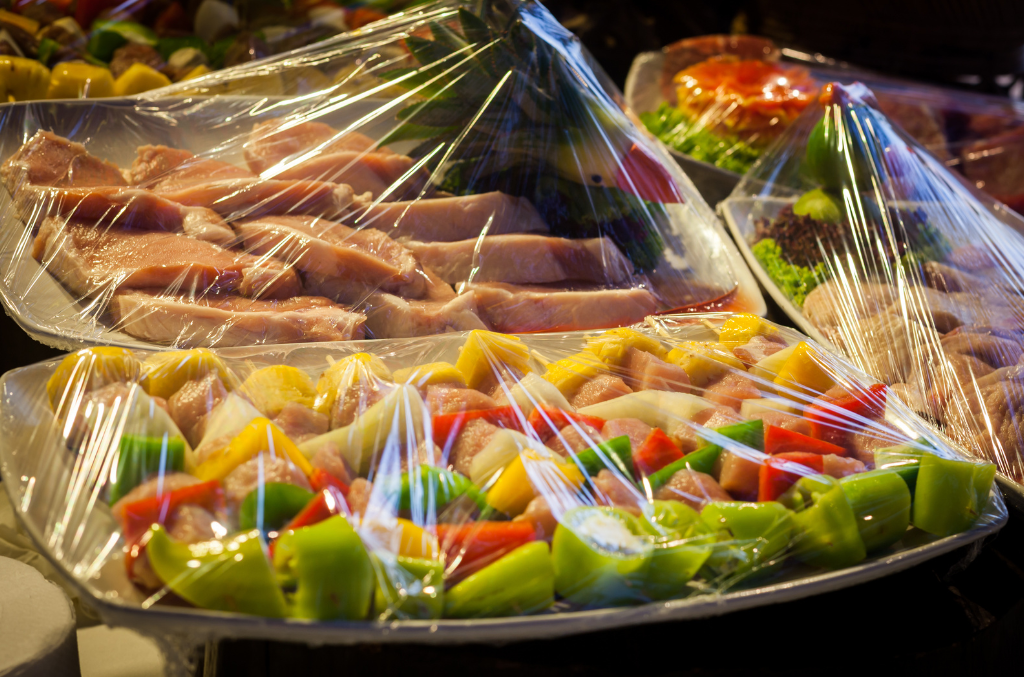
In the restaurant industry, food wraps are indispensable. They’re used to keep ingredients fresh, prevent cross-contamination, and package food for takeout or delivery. For instance, plastic wrap is often used to cover containers of prepped ingredients, while aluminum foil is used to wrap grilled items or baked potatoes.
Grocery Stores: Keeping Deli Items Fresh
Grocery stores extensively use food wraps, particularly in the deli section. Meats, cheeses, and prepared salads are often wrapped in plastic for visibility and freshness. Wax paper might be used to separate slices of deli meats and cheeses. In the bakery section, parchment paper is commonly used to line baking trays and package baked goods.
The Catering Business: Ensuring Food Safety On-the-Go
In the catering business, food safety is paramount, and this is where deli and food wraps come in. They’re used to wrap individual portions, cover platters, and protect food during transport. Aluminum foil containers are commonly used due to their versatility and convenience — they can go from the oven to the table, making food service efficient.
In all these industries, the right choice of food wrap contributes to food quality, safety, and customer satisfaction. In the following sections, we’ll provide tips on choosing the right food wrap for your needs and discuss proper usage and maintenance.
Tips for Choosing the Right Deli and Food Wraps
Choosing the right deli and food wrap involves more than just picking up the first product you see on the shelf. Here are some factors to consider, ensuring you’re making the best choice for your specific needs.
Identifying Your Specific Needs
Before you choose a food wrap, define your needs. Are you looking for a wrap for baking, freezing, microwaving, or simply storing leftovers? The type of food you’re dealing with, and the method of preparation and storage all play a role in determining the most suitable wrap.
Considering Eco-friendly Options
With growing environmental concerns, it’s essential to consider the environmental impact of your choice. If sustainability is important to you, consider eco-friendly alternatives like beeswax or soy wax wraps. They’re reusable, compostable, and reduce reliance on single-use plastics.
Understanding the Performance Characteristics of Different Materials
As we’ve discussed earlier, different materials have different properties. Plastic wrap is versatile and forms a tight seal, but it’s not suitable for high-temperature applications. Aluminum foil can withstand high temperatures and is excellent for freezing, but it can react with acidic or salty foods. Wax and parchment paper are non-stick and ideal for cold foods and baking, but they don’t seal as well as plastic or foil.
By understanding your needs and the properties of different materials, you can make an informed choice that ensures food safety, preserves quality, and meets your specific requirements. In the next section, we’ll discuss the correct usage and maintenance of deli and food wraps.
Proper Usage and Maintenance of Deli and Food Wrap
Using deli and food wraps correctly can enhance food safety, preserve freshness, and extend the shelf life of your food. Here’s how to use and maintain different types of food wraps effectively.
How to Store Different Types of Food Wraps
Proper storage of food wraps can prolong their quality and effectiveness. Store them in a cool, dry place away from direct sunlight. Ensure that the edges of the wrap are not exposed to prevent them from getting dirty or damaged.
Best Practices for Using Food Wrap Effectively
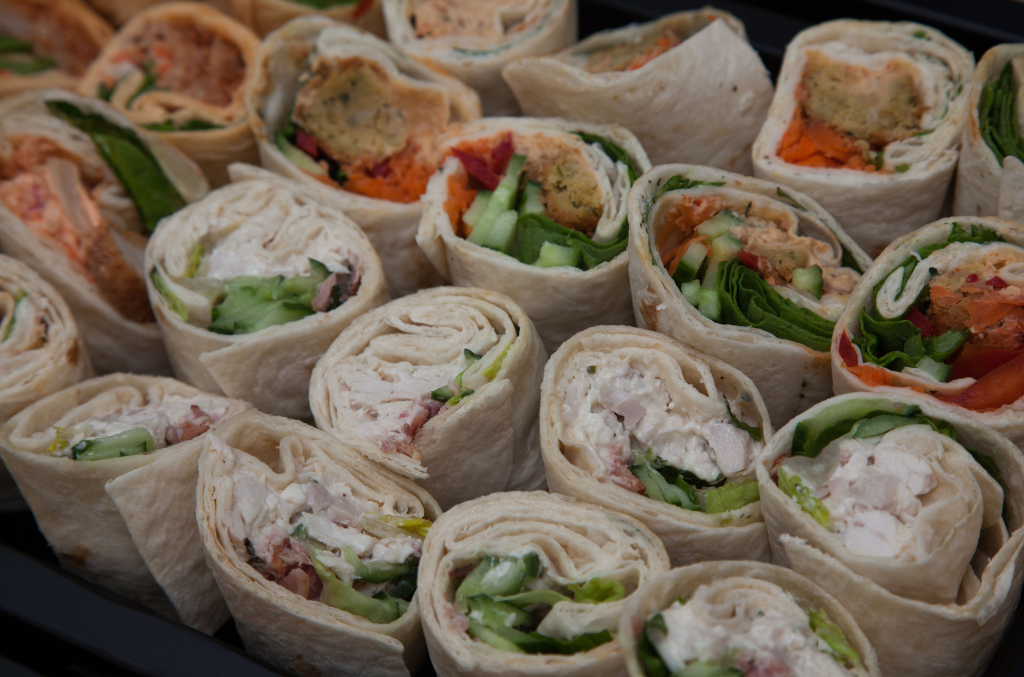
When using plastic wrap, ensure the surface you’re wrapping is clean and dry, as moisture can affect its cling. For aluminum foil, remember that the shiny side reflects heat, so when cooking, if you want to cook something quickly, the shiny side should be facing the food.
When using wax or parchment paper for baking, it’s best to slightly crumple the paper before lining the baking tray. This makes the paper more pliable and easier to shape to the tray.
For eco-friendly deli and food wraps, after use, clean them with cold water and mild soap, then air dry before storing. Avoid using them for wrapping raw meat or fish to prevent cross-contamination.
Remember, each type of wrap has its unique properties and uses. Use them correctly, and they can be effective tools in maintaining food safety and quality. In the next section, we’ll discuss the regulatory aspects of deli and food wraps.
Regulatory Aspects of Deli and Food Wrap
When it comes to food contact materials like deli and food wraps, safety is paramount. Various regulatory bodies have set guidelines to ensure these products are safe for use. Understanding these regulations can help you make informed choices.
Understanding FDA Regulations for Food Contact Materials
In the United States, the Food and Drug Administration (FDA) regulates food contact substances. This includes deli and food wraps. The FDA requires manufacturers to demonstrate that these substances are safe for their intended use. For example, plastic wraps intended for microwave use must be proven not to melt and leach harmful substances into the food at high temperatures.
International Standards for Food Packaging Materials
Internationally, various organizations set standards for food contact materials. For instance, the European Union has specific measures in place to control the use of plastics in food contact materials. Similarly, in Australia, Food Standards Australia New Zealand (FSANZ) provides guidelines on this matter.
When choosing a deli or food wraps, look for products that comply with these regulations. This ensures that the product is safe for its intended use and minimizes potential health risks. In the next section, we’ll look at different brands of deli and food wrap and factors to consider when choosing a brand.
Different Brands of Deli and Food Wrap
The market is flooded with various brands offering a range of deli and food wraps. They cater to different needs and preferences, from everyday household use to commercial applications. Here’s what you should consider when choosing a brand.
Factors to Consider When Choosing a Brand
When choosing a brand, consider the following factors:
Quality and Safety: Look for brands that offer high-quality products that comply with regulatory standards. This ensures the safety and effectiveness of the wrap.
Versatility: Some brands offer a range of products catering to different needs. For instance, they might offer plastic wrap for general use and also foil for cooking and freezing.
Sustainability: If environmental impact is a concern, look for brands that offer eco-friendly alternatives. These could be wraps made from natural materials like beeswax or those that are biodegradable.
Price: Of course, price is always a consideration. While it’s important to choose a high-quality product, it should also fit within your budget.
By considering these factors, you can choose a brand that aligns with your needs and values. In the next section, we’ll wrap up by summarizing the key points and encouraging responsible usage and disposal of food wraps.
Conclusion: Making the Right Choice for Your Food Wrapping Needs
Choosing the right deli and food wrap is an essential part of maintaining food safety, preserving freshness, and enhancing the quality of your food. By understanding the different types of food wraps and their unique properties, you can make informed choices that align with your specific needs.
Summarizing the Key Points
Whether it’s the versatile plastic wrap, the heat-friendly aluminum foil, the non-stick wax and parchment papers, or the sustainable eco-friendly wraps, each type of food wrap has its unique features and uses.
Your choice should depend on various factors, including the type of food, the method of preparation and storage, your environmental concerns, and regulatory standards. Proper usage and maintenance of these wraps can further enhance their effectiveness.
Encouraging Responsible Usage and Disposal Deli and Food Wraps
While Deli and Food Wraps bring convenience and safety, it’s crucial to use and dispose of them responsibly. Opt for reusable or biodegradable options where possible, and ensure proper disposal of single-use wraps to minimize environmental impact.
Remember, the right food wrap not only preserves your food but also contributes to a safer and healthier environment. Make your choice wisely and enjoy the benefits that these essential kitchen companions bring to your daily life.
Frequently Asked Questions (FAQ)
At IP Products, we offer a wide range of Deli and Food Wraps to meet your needs. Browse our collection today and find the perfect Deli and Food Wraps for your job. We are dedicated to quality, customer satisfaction, and fast shipping.
